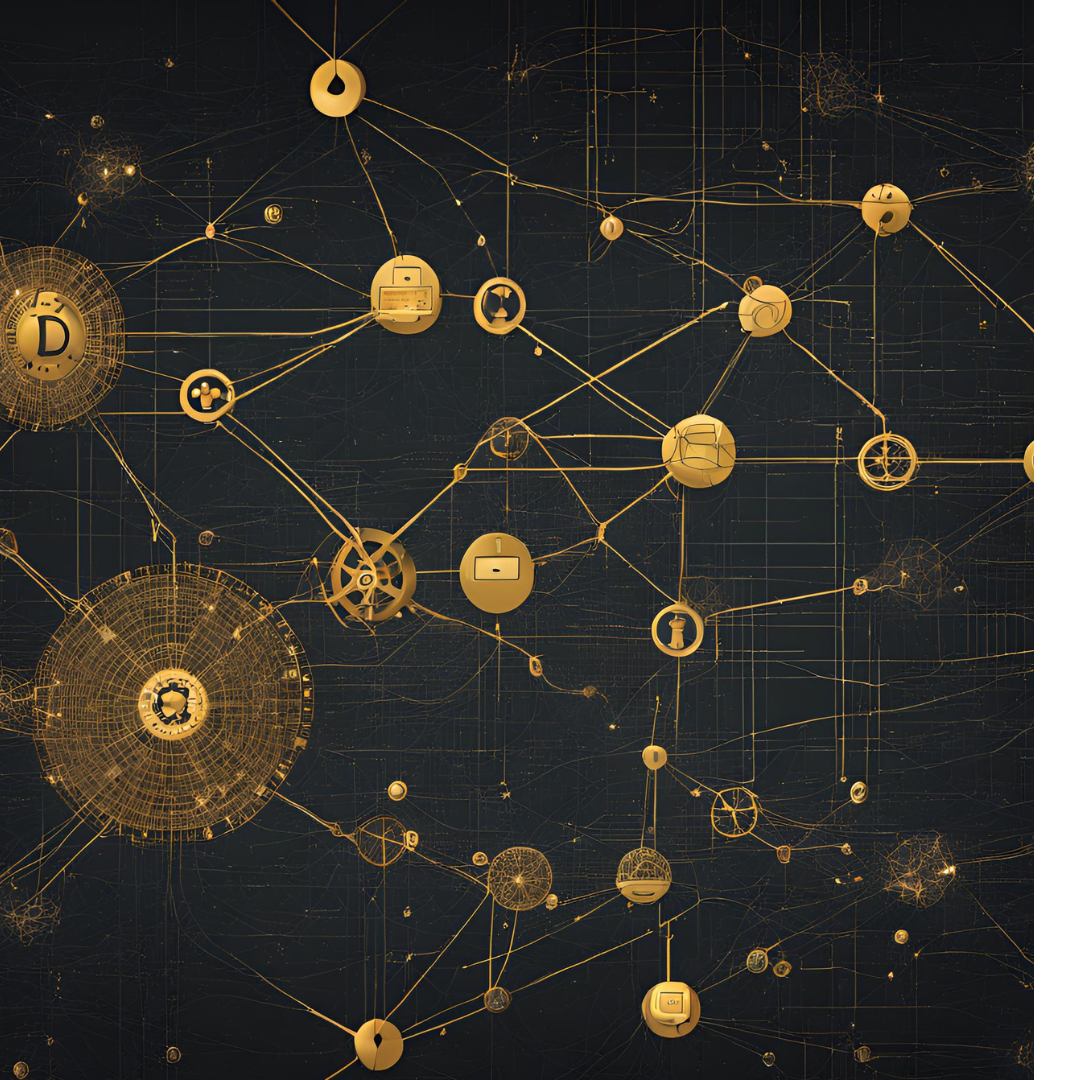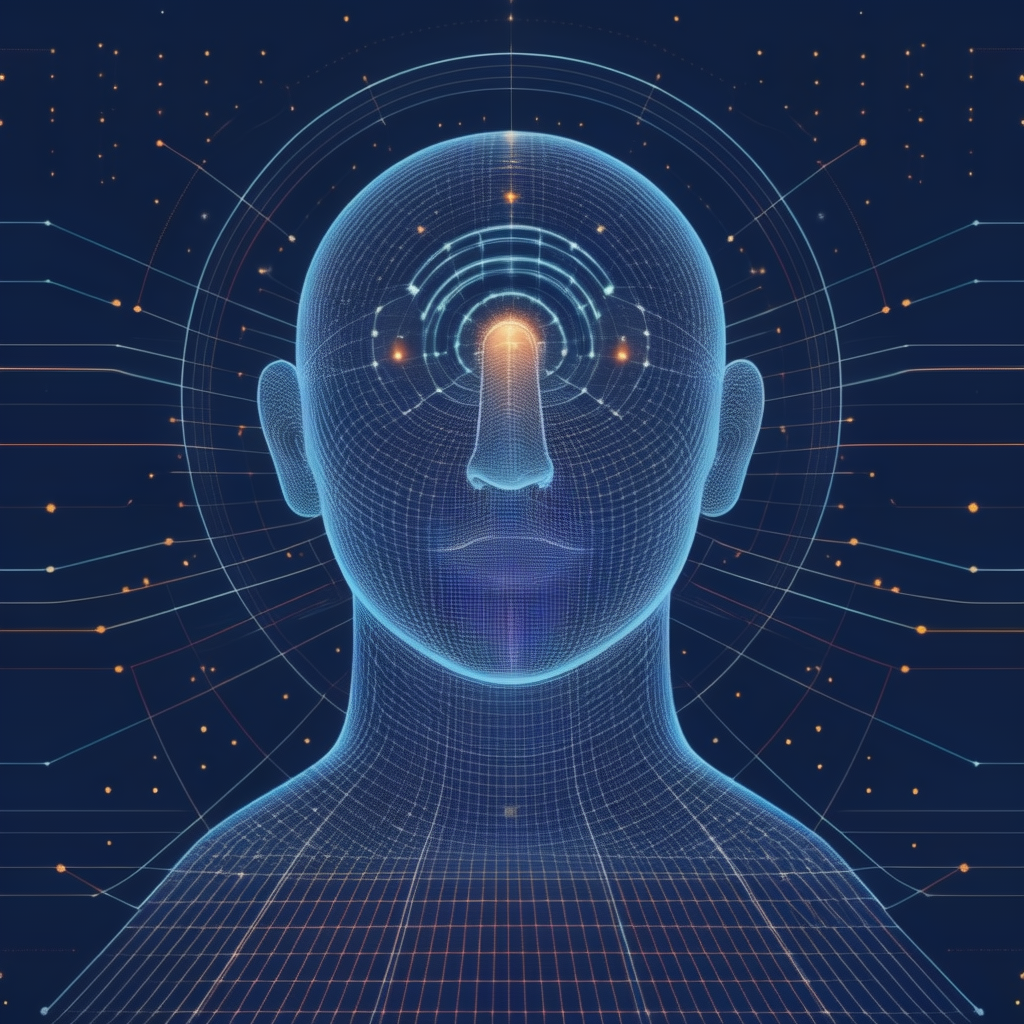Quantum computing, a realm where the laws of classical physics take a back seat, has captured the imagination of scientists, researchers, and tech enthusiasts alike. In this journey through the quantum landscape, we’ll explore key concepts, experiments, and the potential impact of quantum computing on our computational future.
1. Quantum Basics: A Paradigm Shift
Quantum computing operates on the principles of quantum mechanics. Understand the fundamentals of superposition, where qubits can exist in multiple states simultaneously, and entanglement, the mysterious link between particles.
- Quantum Basics: A Paradigm Shift Quantum computing operates on the principles of quantum mechanics. Classical computers use bits that represent either a 0 or a 1. In quantum computing, qubits can exist in multiple states simultaneously, thanks to the concept of superposition. This allows quantum computers to perform complex computations in parallel, marking a fundamental shift from classical computing.
- The Quantum Field: Beyond Bits and Bytes Qubits are the quantum counterparts to classical bits. Unlike classical bits, which can only be in a state of 0 or 1, qubits, through superposition, can exist in multiple states at once. This ability opens up an unprecedented range of possibilities, allowing quantum computations to explore multiple solutions simultaneously.
- Uncertainty Principle: Embracing the Unknown Heisenberg’s Uncertainty Principle states that the more precisely one property of a particle is measured, the less precisely another property can be known. In the quantum world, the act of measurement itself can alter the properties of quantum particles, introducing an inherent uncertainty.
- Quantum Mechanics vs. Classical Physics Contrast the principles of classical physics, which govern the macroscopic world, with the peculiar behaviors of quantum mechanics that dominate the microscopic world. Quantum mechanics introduces phenomena such as superposition, entanglement, and wave-particle duality.
- Double-Slit Experiment: Wave-Particle Duality The double-slit experiment demonstrates the wave-particle duality of particles, where they exhibit characteristics of both waves and particles. The outcome of this experiment has profound implications for our understanding of quantum mechanics and the nature of particles.
- Quantum Superposition in Action Superposition enables quantum computers to perform parallel computations. Instead of processing one combination of bits at a time, quantum computers can explore multiple combinations simultaneously, providing exponential speedup for certain problems.
- Quantum Entanglement: Spooky Action at a Distance Entanglement is a phenomenon where particles become interconnected, and the state of one particle instantaneously influences the state of another, regardless of distance. This mysterious connection is a key feature in quantum communication and computation.
- Quantum Singularity: Beyond Classical Limits Quantum singularity refers to a computational state where quantum systems surpass classical limits. This concept represents a leap in computational power, suggesting the potential for quantum computers to tackle problems that are currently intractable for classical computers.
- Quantum Computing and Artificial Intelligence synergies between quantum computing and artificial intelligence. Quantum algorithms have the potential to revolutionize machine learning by solving complex problems, such as optimization tasks and data analysis, more efficiently than classical algorithms.
- Quantum Supremacy: Navigating Uncharted Waters Quantum supremacy is the theoretical point at which quantum computers outperform classical computers. This concept is a subject of ongoing research and debate, with recent breakthroughs sparking discussions about the capabilities and limitations of quantum computers.
- Quantum Computing Research Landscape the current state of quantum computing research includes advancements in quantum hardware, developments in different quantum computing models (e.g., superconducting qubits, trapped ions), and ongoing experiments exploring the practical applications of quantum computing.
- Quantum Ethics: Navigating Uncharted Terrain Contemplate the ethical considerations of quantum computing. This involves addressing issues related to quantum encryption, data security, and potential societal impacts. As quantum technologies advance, ethical frameworks will be crucial for guiding responsible development and usage.
13. Quantum Algorithms: Cracking the Quantum Code
Quantum algorithms leverage the unique properties of quantum bits (qubits) to solve problems exponentially faster than classical algorithms. Shor’s algorithm, for instance, targets integer factorization, posing a threat to classical encryption, while Grover’s algorithm excels in searching databases.
14. Quantum Cryptography: Unbreakable Digital Seals
Quantum cryptography employs quantum properties like entanglement to create unbreakable encryption. Quantum Key Distribution (QKD) leverages the principles of quantum mechanics to secure communication channels, promising a new era of secure digital communication.
15. Quantum Machine Learning: A New Paradigm
The intersection of quantum computing and machine learning explores how quantum algorithms can enhance pattern recognition, classification, and optimization tasks, potentially revolutionizing the field of artificial intelligence.
16. Quantum Simulation: Mimicking the Unmimickable
Quantum computers excel in simulating quantum systems, providing insights into molecular interactions and material properties. This has implications for drug discovery, material science, and understanding fundamental quantum phenomena.
17. Quantum Error Correction: Preserving Quantum States
Quantum computers face challenges like decoherence and errors. Quantum error correction codes are crucial to preserving fragile quantum states during computations, paving the way for more reliable quantum processors.
18. Quantum Hardware: From Qubits to Quantum Processors
The hardware side of quantum computing involves technologies like superconducting qubits and trapped ions. Understanding the delicate conditions required for their operation is essential for the development of quantum processors.
19. Quantum Networking: Entangled Information Highways
Quantum communication networks leverage entangled particles for ultra-secure communication channels. This could lay the foundation for a quantum internet, enabling secure communication beyond the capabilities of classical systems.
20. Quantum Supremacy Milestones: Achievements and Controversies
Quantum supremacy refers to a quantum computer outperforming classical computers. This point explores significant milestones, controversies around claims, and ongoing efforts to achieve and surpass quantum supremacy.
21. Quantum Cloud Computing: Accessing Quantum Power Remotely
Cloud-based quantum computing services aim to make quantum power accessible to researchers and industries. This involves challenges related to building and maintaining quantum machines remotely.
22. Quantum Education and Outreach: Bridging Knowledge Gaps
Initiatives in quantum education and outreach focus on preparing the next generation for the quantum era. This includes programs, courses, and resources aimed at closing knowledge gaps in quantum technologies.
23. Quantum Ethics: Unraveling Ethical Considerations
The ethical dimensions of quantum technologies involve concerns related to privacy, security, and the responsible development of quantum applications. Exploring these ethical considerations is vital for ensuring responsible use.
24. Quantum Computing and Nature-Inspired Algorithms
Quantum computers can leverage nature-inspired algorithms for applications in optimization problems inspired by natural phenomena. This could lead to more efficient solutions for complex problems.
25. Quantum Computing Standards: Paving the Way Forward
Efforts to establish standards for quantum computing aim to create a common language and framework. Standardization is crucial for guiding the development and use of quantum technologies.
26. Quantum Financial Services: Revolutionizing Transactions
Quantum computing’s potential impact on the financial sector involves applications in portfolio optimization, risk assessment, and the development of quantum-resistant cryptography for secure transactions.
27. Quantum Computing in Healthcare: Accelerating Drug Discovery
The healthcare sector stands to benefit from quantum computing by revolutionizing drug discovery. Quantum simulations could provide accurate insights into complex biological systems.
28. Quantum Consciousness: Bridging Physics and Philosophy
Exploring the intersection of quantum mechanics and consciousness delves into philosophical discussions about whether quantum phenomena play a role in the nature of consciousness.
29. Quantum Art: Bridging Science and Creativity
Quantum art is an emerging field where artists and scientists collaborate to visualize and interpret quantum concepts creatively. This fusion of science and creativity provides new perspectives on quantum phenomena.
30. Quantum Startups: Pioneering the Quantum Frontier
Quantum startups are at the forefront of developing innovative technologies, from quantum hardware to software applications. Exploring the landscape of these startups reveals the diverse avenues being explored in the quantum frontier.
31. Quantum Sensors: Precision Beyond Classical Limits
Quantum sensors utilize quantum phenomena to achieve unprecedented levels of precision. Applications include ultra-precise measurements in fields such as navigation, imaging, and environmental monitoring.
32. Quantum Teleportation: Transmitting Quantum States
Quantum teleportation allows the transfer of quantum information from one location to another without physical movement. Understanding this phenomenon involves exploring the intricacies of entanglement and quantum information theory.
33. Quantum Neuromorphic Computing: Emulating Brain Function
Quantum neuromorphic computing aims to replicate aspects of the human brain’s computational capabilities. This involves exploring quantum algorithms inspired by neural networks and synaptic connections.
34. Quantum Computing Policies and Regulations
As quantum technologies advance, the need for policies and regulations becomes crucial. This includes considerations for data security, privacy, and international collaboration in quantum research.
35. Quantum Computing and Environmental Impact
Examining the environmental implications of quantum computing involves assessing factors like energy consumption and the materials used in quantum processors. Balancing technological advancements with environmental sustainability is a key consideration.
36. Quantum Computing and Space Exploration
The intersection of quantum computing and space exploration explores how quantum algorithms can optimize mission planning, data analysis, and communication in the context of space missions.
37. Quantum Computing in the Automotive Industry
The automotive industry can benefit from quantum computing in areas like supply chain optimization, vehicle design simulations, and traffic management. Exploring these applications sheds light on the potential transformation of the industry.
38. Quantum Computing and Virtual Reality
Quantum computing can enhance virtual reality experiences by accelerating complex simulations and rendering processes. The synergy between quantum computing and virtual reality opens up new possibilities for immersive digital experiences.
39. Quantum Computing and Climate Modeling
Quantum computing’s computational power can significantly impact climate modeling, facilitating more accurate simulations and analyses. This has implications for understanding climate change and developing effective mitigation strategies.
40. Quantum Museums and Experiences
As quantum technologies become more accessible, creating museums and interactive experiences dedicated to quantum science can play a role in educating the public. Such initiatives can foster a deeper understanding and appreciation for the quantum world.
Quantum Computing Subtopics:
Quantum Machine Learning (QML)
Quantum Machine Learning combines quantum computing’s computational power with machine learning algorithms, offering potential advancements in pattern recognition, optimization, and complex data analysis.
Quantum Cryptography
Quantum cryptography leverages the principles of quantum mechanics to create unbreakable encryption methods. Exploring quantum key distribution and quantum-safe cryptographic techniques is crucial for securing data in a quantum world.
Quantum Internet
The concept of a Quantum Internet involves utilizing quantum entanglement for secure communication over long distances. This field explores quantum repeaters, quantum routers, and the development of a quantum internet infrastructure.
Quantum Computing Hardware
Understanding the architecture and components of quantum computing hardware, such as qubits, quantum gates, and quantum processors, is essential. Examining the advancements in superconducting qubits, trapped ions, and topological qubits provides insights into the current state of quantum hardware.
Quantum Computing Education and Skills:
Quantum Information Science Education
To enter the field of quantum computing, individuals need a strong foundation in Quantum Information Science. This includes understanding quantum mechanics, linear algebra, and quantum algorithms. Online courses, certifications, and academic programs offer avenues for gaining this knowledge.
Programming Quantum Computers
Programming languages like Qiskit (for IBM Quantum computers), Cirq (for Google’s Quantum processors), and others are essential tools for quantum programming. Skills in quantum circuit design, error correction, and optimization algorithms are critical for quantum software development.
Quantum Community Involvement
Active participation in the quantum community through forums, conferences, and collaborative projects enhances one’s understanding of current developments. Platforms like GitHub host open-source quantum projects, providing opportunities for hands-on contributions.
Quantum Computing Landscape:
Global Quantum Initiatives
Understanding worldwide quantum initiatives, including national strategies and collaborative projects, provides insights into the global quantum landscape. Exploring initiatives like the Quantum Flagship Program in Europe or quantum research in countries like China and Canada offers a comprehensive view.
Quantum Startups
The quantum computing startup ecosystem is vibrant, with companies like Rigetti, IonQ, and Rigetti leading the way. Exploring the products, services, and innovations of quantum startups contributes to the overall understanding of the quantum business landscape.
Corporate Quantum Initiatives
Major technology companies, including IBM, Google, Microsoft, and others, are investing significantly in quantum research. Examining their quantum initiatives, research publications, and partnerships provides insights into the corporate quantum landscape.
Quantum Computing in Research and Innovation:
Quantum Computing Research Papers
Staying updated on quantum computing research papers from leading journals and conferences, such as Nature, Science, and Quantum Information Processing, is essential for gaining in-depth knowledge of recent breakthroughs and discoveries.
Quantum Computing Patents
Analyzing quantum computing-related patents provides insights into the intellectual property landscape. Understanding which companies hold key patents and the areas they focus on is crucial for identifying trends and innovation directions.
Quantum Computing Challenges:
Quantum Error Correction
Quantum error correction is a fundamental challenge in building practical quantum computers. Exploring the latest advancements in error correction techniques, such as surface code and cat codes, contributes to understanding ongoing challenges.
Scalability and Decoherence
Scalability and mitigating decoherence, where quantum information is lost due to environmental interactions, are persistent challenges. Investigating strategies for achieving fault-tolerant quantum computation and addressing scalability concerns is critical.
Quantum Computing Future:
Quantum Computing Roadmaps
Exploring the quantum computing roadmaps of major companies and research institutions outlines the envisioned paths to achieving quantum advantage. Roadmaps provide insights into the anticipated milestones, hardware improvements, and applications.
Quantum Computing Ethics and Governance
As quantum technologies advance, ethical considerations and governance frameworks become increasingly important. Exploring discussions around quantum ethics, data privacy, and responsible AI in a quantum context is vital.








Your article helped me a lot, is there any more related content? Thanks!